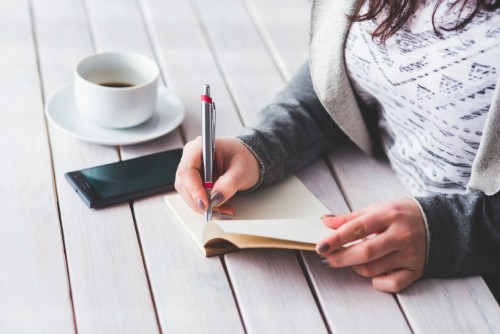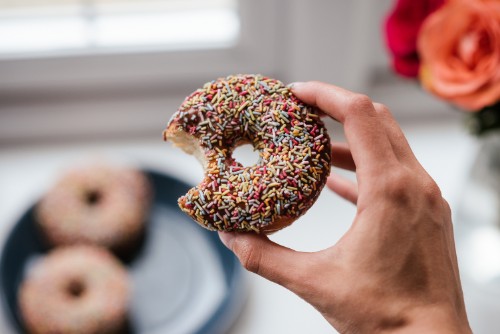So you said CBT-I takes work and motivation…
June 21, 2019How does CBT for Insomnia work?
August 16, 2019
OK, so you might be thinking this one seems obvious, right? Caffeine makes you stay awake, duh, and is not such a great idea if you’re having sleep issues or insomnia. But what does it actually mean that caffeine interferes with sleep, and does it mean you have to give up your favorite Southside or Boomtown brew if you have insomnia? Good news: probably not! Bottom line: moderation is key. But to really understand this, let’s get a little bit into the science of sleep and caffeine:
One of the processes that helps us to sleep at night is the building up of our sleep drive over the course of the day. Adenosine is a neurochemical that builds up while we’re awake and is cleared from our system while we sleep. As adenosine builds up, you feel more sleepy and less alert. Caffeine blocks the body’s natural build up of adenosine for the time that the caffeine is in your body. This is what causes you to feel alert and a boost of wakefulness after a cup of Joe.
Another thing is that caffeine has a 4-6 hour half life. What this means is that it can take your body 4-6 hours to clear out half the amount of caffeine in your body. But, keep in mind that it can take 25-45 minutes for caffeine to kick in after consumption, and it can take 6-8 hours for the full effects of the caffeine to wear off. Also cigarette smoking, pregnancy, body composition and diet can all impact the half life of caffeine in the body.
General insomnia guidelines recommend cutting off any caffeine after twelve noon. This is so that you allow your body’s natural sleep drive to have enough time to build up prior to the time when you would want to go to sleep. But you also want to monitor the total intake of your caffeine. If you’re drinking 8 cups of caffeine before 12 noon, you better believe that will impact your sleep! The FDA recommends no more than 400mg of caffeine a day, or the equivalent of 4 (8 ounce) cups of coffee. If you have blood pressure or heart problems, you’ll want to speak to your doctor about special recommendations for you.
Also, don’t forget about other sources of caffeine besides coffee, such as tea (iced tea with BBQ is a lunch staple, Houstonians!), chocolate, energy drinks and sodas.
An easy solution is to scale back your caffeine intake slowly. So if you drink 4 cups of coffee/day, begin by switching out one cup of coffee for a cup of green tea (green tea only has 30mg of caffeine, compared to coffee’s 100mg per 8-ounce cup). Then continue to do this until you’ve cut back to 1-2 cups of coffee/day. And, if you find you need an afternoon boost without caffeine, try going outside and getting some sunlight exposure. This will tell your brain to “wake up, it’s daytime!”
And like all things with insomnia, you can learn a lot from the data. If you’re tracking your sleep habits (with the help of a trained professional, for best results), you can also track the amount of caffeine you’re taking in and what time and see what impact it’s having on your sleep onset at night. Then you can tweak your habits and see if you notice any improvements.
Want to learn more about CBT for Insomnia? Contact Dr. Hess for a free 15-minute phone consult today.





